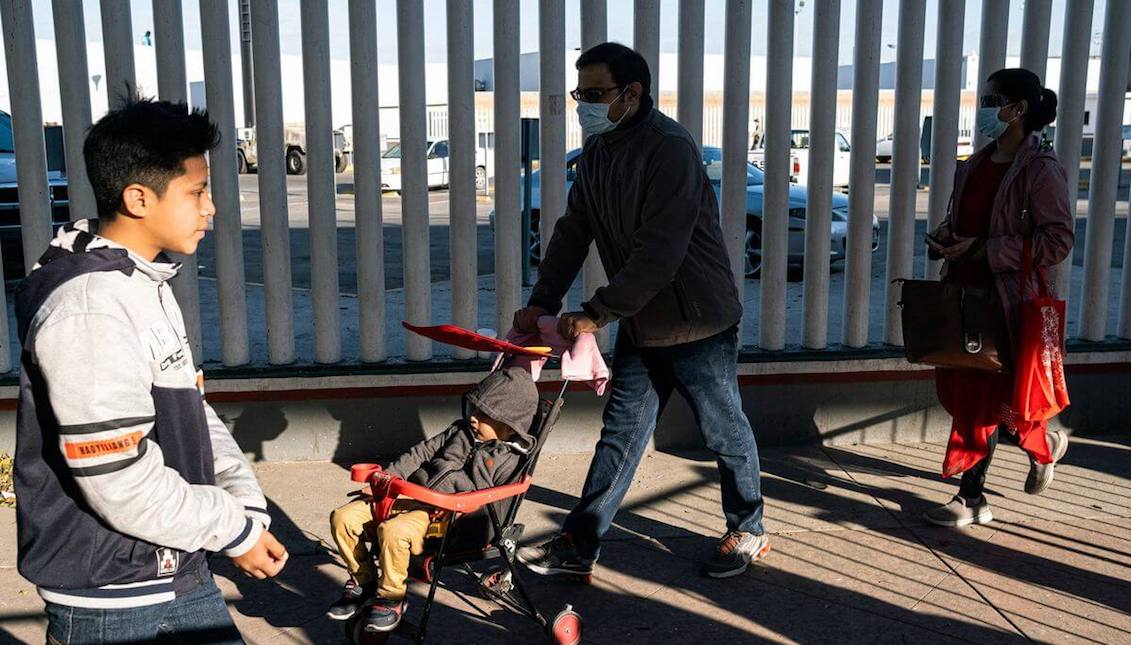
Coronavirus and Immigration: how the pandemic may affect the most vulnerable communities
The Trump Administration's immigration policies could put immigrants, documented and undocumented alike, at risk.
In a country that has proven to have an unequal and often unfair economic and health system, a pandemic as aggressive as COVID-19 is the worst news.
With over 5,702 cases reported in the country (and counting), the Trump Administration's divisionism has fallen short of the aggressiveness of a virus that does not distinguish between social classes and immigration status.
Despite having a very low mortality rate, COVID-19 took its first life in the United States on February 29th in King County in Washington, D.C., just 5 days after the Department of Homeland Security gave the green light to the new Public Charge Rule, passed by the Supreme Court in a 5-4 vote ruling.
The measure often called the "wealth test," prohibits anyone seeking to apply for permanent residence from using government assistance funds such as food stamps, Medicaid or housing vouchers, on pain of being considered a "potential public charge.”
Receipt of Medicaid after Feb. 24 is a heavily weighted factor in the determination of whether the individual is likely to be a public charge in the future," Stat News said.
Considering that millions of undocumented citizens may be disenrolled from Medicaid to avoid problems getting their papers in order, protocols for the control of the Coronavirus pandemic may not include these communities.
“As of result of these barriers, as well as the fact that non-citizens are disproportionately employed in jobs that don’t provide insurance, non-citizens are far less likely to have health coverage than citizens,” the media adds. “Not surprisingly, they are also less likely to have an ordinary source of care. While always troubling for public health purposes, these barriers are likely to be especially dangerous during a pandemic.”
RELATED CONTENT
Similarly, and given the campaign of persecution established by the government through agencies such as Immigration and Customs Enforcement, if they present symptoms, it is very unlikely that undocumented immigrants will voluntarily report to health care centers "for fear that their information will be shared with ICE," Ismael Castro, project manager in building healthy communities in the Boyle Heights neighborhood of Los Angeles, told NBC News.
In California, one of the states with the largest Hispanic populations and one of the highest number of reported cases (583), immigration agents made their presence felt on the streets during the first day of confinement, where they were seen carrying out raids wearing gloves and masks and avoiding contact with detainees.
According to the Los Angeles Times, more than 45 immigrant rights organizations have signed a letter to the Department of Homeland Security to stop these routines, especially during the epidemic.
Despite the suspension of many of their activities, such as masterclasses and training, the Department has maintained the raids.
In addition, the Administration's "Remain in Mexico" policy has confined some 60,000 immigrants to unsanitary conditions at the border, where they await their turn to apply for asylum.
“As these vulnerable people await humanitarian relief, an outbreak of the virus in their shelters and camps could be devastating,” wrote immigration attorney Raul A. Reyes in his column for The Hill. “Again, this would not only affect migrants: Due to its highly contagious nature, a Coronavirus outbreak along the border would likely expose Border Patrol agents, U.S. troops, and aid workers to the virus too.”











LEAVE A COMMENT: